Joseph Hazel
Group Chief Executive Officer interview with Hospitals by Arab Hospital Magazine
Joseph Hazel is a distinguished leader in the healthcare industry with over 30 years of C-suite experience across Africa, Europe, the UK, and the Middle East. In February 2023, he joined Apex Health to spearhead the development of an integrated, collaborative private healthcare group portfolio, focusing on the MENA region. Under his leadership, Apex Health has transformed from establishing a leading private 250-bed hospital in Qatar in 2022 to now operating 8 hospitals across 4 countries, encompassing over 3,000 beds. With an additional 13+ projects in the pipeline for 2025, Joseph’s strategic acumen is driving unparalleled growth and innovation, and most recently has been appointed as member of the Advisory Board for the Arab Hospitals Federation. Prior to his role at Apex Health, Joseph spent 7 years at Mediclinic Middle East as the Chief Operating Officer for Abu Dhabi, where he played a crucial role in elevating healthcare standards and operational excellence. Joseph holds an MSc in Healthcare Economics, Policy, and Management from the London School of Economics, an MBA, and a Diploma in Management from the Open University. He has further honed his expertise with certificates in Managing Healthcare Delivery and Strategy Execution from Harvard Business School, as well as completing director training at the Institute of Directors and leadership training at the Royal Military Academy Sandhurst.
In just two years, Apex Health has become a major player in the MENA region, with a vision to redefine patient care through global partnerships, advanced digital platforms, and unmatched operational scale. Group CEO Joseph Hazel shares how they’re doing it.
At a time when the global healthcare sector is seeking resilient, scalable, and patient-first models, few success stories stand out quite like Apex Health. From launching its first flagship hospital in Qatar in 2022 to now managing eight hospitals across four countries, with 13 more projects underway. Apex Health is growing with purpose and vision.
Guided by its parent company Estithmar Holding, and powered by strategic affiliations with world-renowned institutions like Cedars Sinai, Los Angeles, USA– ASAN Medical Center, South Korea, Apex Health is making bold moves to raise healthcare standards across the MENA region. At the helm of this transformation is Joseph Hazel, Group CEO, whose career spans top global organizations and healthcare systems from the UK and Africa to the UAE and now Qatar. We sat down with Mr. Hazel to discuss what it takes to build a modern, tech-forward, globally connected healthcare group and what the future looks like as Apex Health continues its expansion.
Joseph, you joined Apex Health in early 2023. In just 2 years, the group has grown from one hospital to eight across four countries with over 2,000 beds. What’s behind this remarkable expansion?
It’s been an incredible journey, and I’d say the foundation of our growth is the vision of Estithmar Holding, our parent company, which is listed on the Qatar Stock Exchange and backed by over 5,000 Qatari shareholders. That strong national support gave us both the mandate and the credibility to start ambitious projects quickly. It began with The View Hospital in Doha, in partnership with Cedars-Sinai, Los Angeles, USA, and that quickly positioned us as the leading private healthcare provider in Qatar. Since then, our focus has been on expanding into countries where governments are actively seeking high-quality private sector operators. We’re now operating or developing hospitals in Algeria, Iraq, and Libya, with many more projects across the Middle East and Central Asia in the pipeline.
Let’s talk more specifically about those expansion efforts. What are the major developments happening across these countries?
We’ve signed a joint venture in Algeria with the Sovereign Wealth Fund (FNI) to develop and operate a flagship hospital in Algiers, expected to be completed by 2027. In Iraq, we’re managing two large public hospitals one in Karbala and one in Nasiriyah with nearly 600 beds each. These were awarded through a competitive tender process and are part of a larger initiative to uplift Iraq’s hospital management systems. We’re also building a brand-new 400-bed hospital in Baghdad, Iraq, which has just received a license from Iraq’s Investment Committee. In Libya, we’ve begun operations in a heart hospital in Misrata and are now exploring additional hospital management and design-build projects. Across all these, our approach is bespoke: we assess the healthcare needs and work with governments to bring the right capabilities; clinical, digital, and operational into play.
You’ve described Apex Health’s growth across Qatar, Algeria, Iraq, and Libya. What enables the group to deliver in such varied settings so quickly?
A lot of it comes down to our strategic framework and integrated service offering. We’re not just hospital operators, we’re healthcare system partners.
We offer the full spectrum: from designing and building new hospitals, to running clinical services, to providing EMR systems, mobile health apps, and even our own pharmaceutical distribution network.
This allows governments to work with a single, coordinated partner who can modernize their entire healthcare platform.
Many public systems are behind in digital health or clinical performance management, and we help them leap forward using AI tools, automation, and predictive analytics. That’s a big part of why we’re seeing so much regional interest; it’s not just about expansion, it’s about capability.
Apex Health is also known for its global clinical partnerships. How have these shaped the organization’s culture and capabilities?
Our partnerships are more than just logos on a slide, they’re embedded in how we deliver care. In Qatar alone, we have Cedars-Sinai in Los Angeles, USA for The View Hospital, ASAN Medical Center in South Korea for our Korean Medical Center, and WMC (a German partner) for the Military Medical City Hospital (Managed by EWS). Each partner brings a unique layer of expertise. Cedars-Sinai supports our advanced clinical programs, offers visiting doctors, and provides second opinions.
ASAN Medical Center, also ranked among the top hospitals globally, supports surgical excellence and training. These relationships also help us attract and retain top medical talent by offering research, academic affiliations, and continuous education, often in collaboration with institutions like Weill Cornell Qatar, Qatar University, and HEC Paris.
You’ve mentioned innovation frequently. What are the digital health technologies or tools that have fundamentally transformed operations at Apex Health?
We’ve made major investments in our digital health infrastructure. That includes a proprietary Electronic Medical Record (EMR) system, our own mobile patient app, and a suite of AI-powered tools that support clinical decision-making, patient engagement, and administrative efficiency.
In fact, we’ve launched over 45 AI projects, from ambient listening tools that transcribe and structure clinical conversations into EMRs, to AI-assisted ICU platforms that reduce mortality rates by providing real-time decision support.
We also offer tele-ICU, digital triage systems, and remote patient monitoring solutions that help us scale care without compromising quality.
The View Hospital in Doha has been described as a blend of luxury and clinical excellence. What makes it such a standout facility in the region?
It’s a new benchmark in the region, designed around the concept of hotel-hospital integration. From royal suites to high-end interiors, the patient journey is central to everything. We’ve brought in hospitality training teams from top hotel groups, including some that manage luxury resorts in the Maldives, to instill that service excellence into our healthcare model. But it’s not just about luxury.
Clinically, it’s state-of-the-art: we have the latest Da Vinci robotic system, advanced surgical theaters, and a constantly rotating roster of world-class visiting clinicians.
The facility also benefits immensely from its direct partnership with Cedars-Sinai, Los Angeles, which supports medical programs, symposia, second opinions, and staff training.
Are you planning to bring this model to other Apex Health facilities in the future?
Absolutely. Our vision is to adapt and deploy successful elements of each model across the network, whether that’s Cedars-Sinai’s transplant programs or ASAN’s surgical training. Each partnership enhances our ability to offer high-complexity, high-quality care close to home. We also maintain advisory boards with these partners, helping guide governance and clinical strategy across our facilities.
As we expand into new geographies, we plan to replicate and customize this model based on local needs and capabilities.
With such a fast pace of growth, how do you decide where to expand next?
We don’t have a one-size-fits-all playbook. We assess each opportunity based on local healthcare needs, regulatory support, and Qatar’s diplomatic relationships.
Many countries approach us with specific needs: some want us to manage hospitals they’ve already built; others want new hospitals designed and operated from scratch. We offer a full-service platform; clinical, operational, digital, and supply chain, so we can be quite flexible. That includes our newly launched distribution network for pharmaceuticals and consumables. In some cases, a government may just want our IT and EMR ecosystem to upgrade their national platforms.
You’ve previously worked with other Companies in Middle East and Africa. What lessons from that experience are now informing your leadership at Apex Health?
By managing care for a very diverse expatriate population taught me the importance of tailoring care pathways to different cultural and clinical expectations.
It also reinforced the value of aligning local recruitment with international standards, something we continue to do at Apex Health. Perhaps most importantly, it showed me how to build trust-based organizations: focus on doing the right thing, bring in the best talent, be transparent, and engage with communities genuinely, ensuring we become the choice of every patient. Those lessons are very much at the heart of how we operate at Apex Health today.
What is your vision of world-class healthcare in the MENA region? Where is the biggest gap today?
The MENA region is evolving fast, but preventative care is still lagging. We spend a lot of time treating advanced conditions that could have been prevented with better screening and early intervention. So much of our effort is still reactive. I believe digital tools and public-private coordination can dramatically change that.
Over the next few years, I think we’ll see a major shift toward digitally driven, preventative-first healthcare that supports population health, not just hospital throughput. Apex Health is well-positioned to lead that change.
And finally, when you look ahead five years from now, what does success look like for Apex Health?
Success isn’t about the number of hospitals, it’s about impact. We want Apex Health to be seen as the partner of choice for governments and health systems that want to elevate care standards. Whether they’re looking to manage six hospitals or upgrade their national digital health platform, we want them to call Apex Health first. We also want to prove that a private company, based in the Middle East can deliver public value at scale, with excellence. That’s the legacy we’re working to build.






.svg)






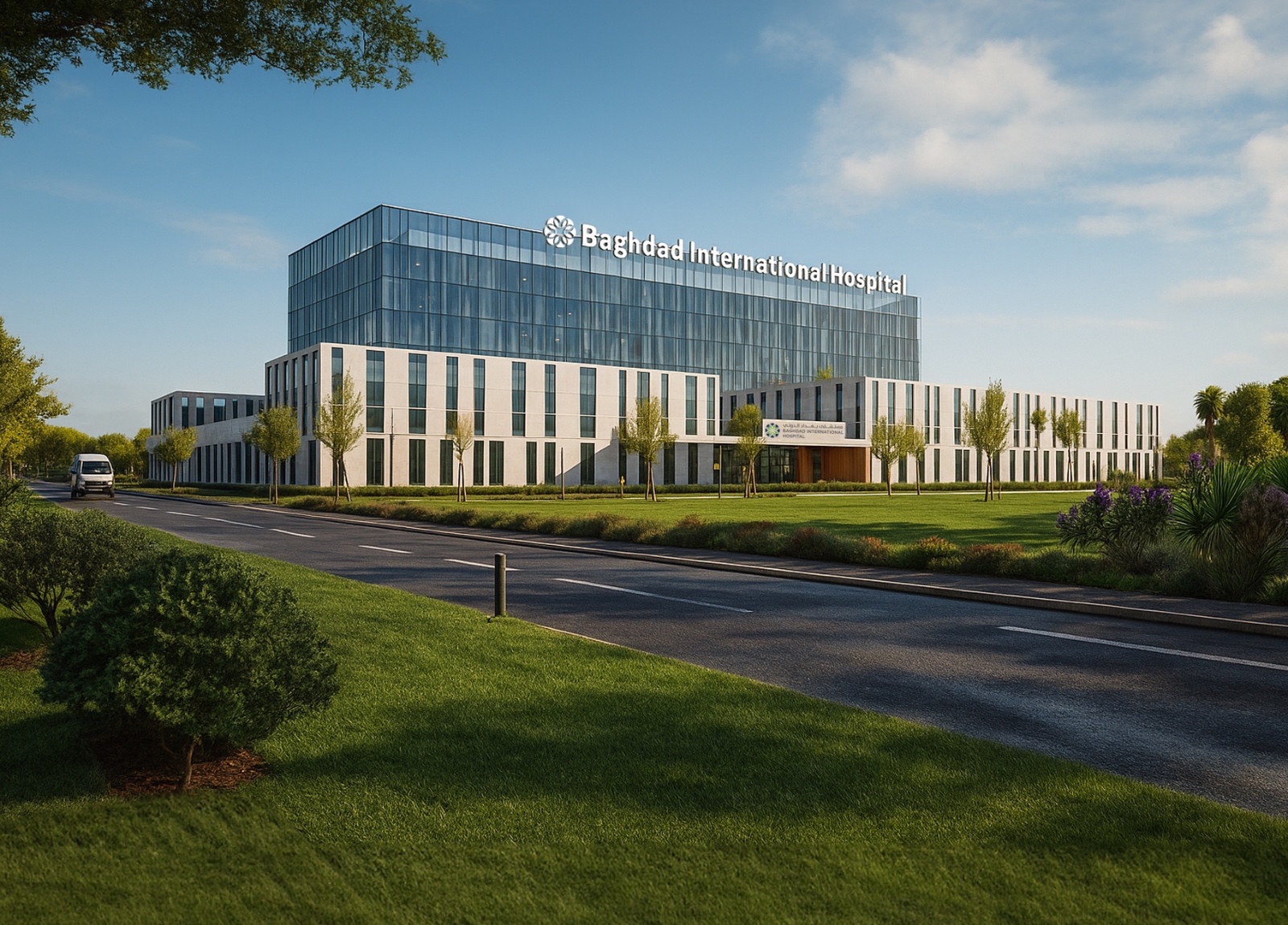
.svg)
.jpg)
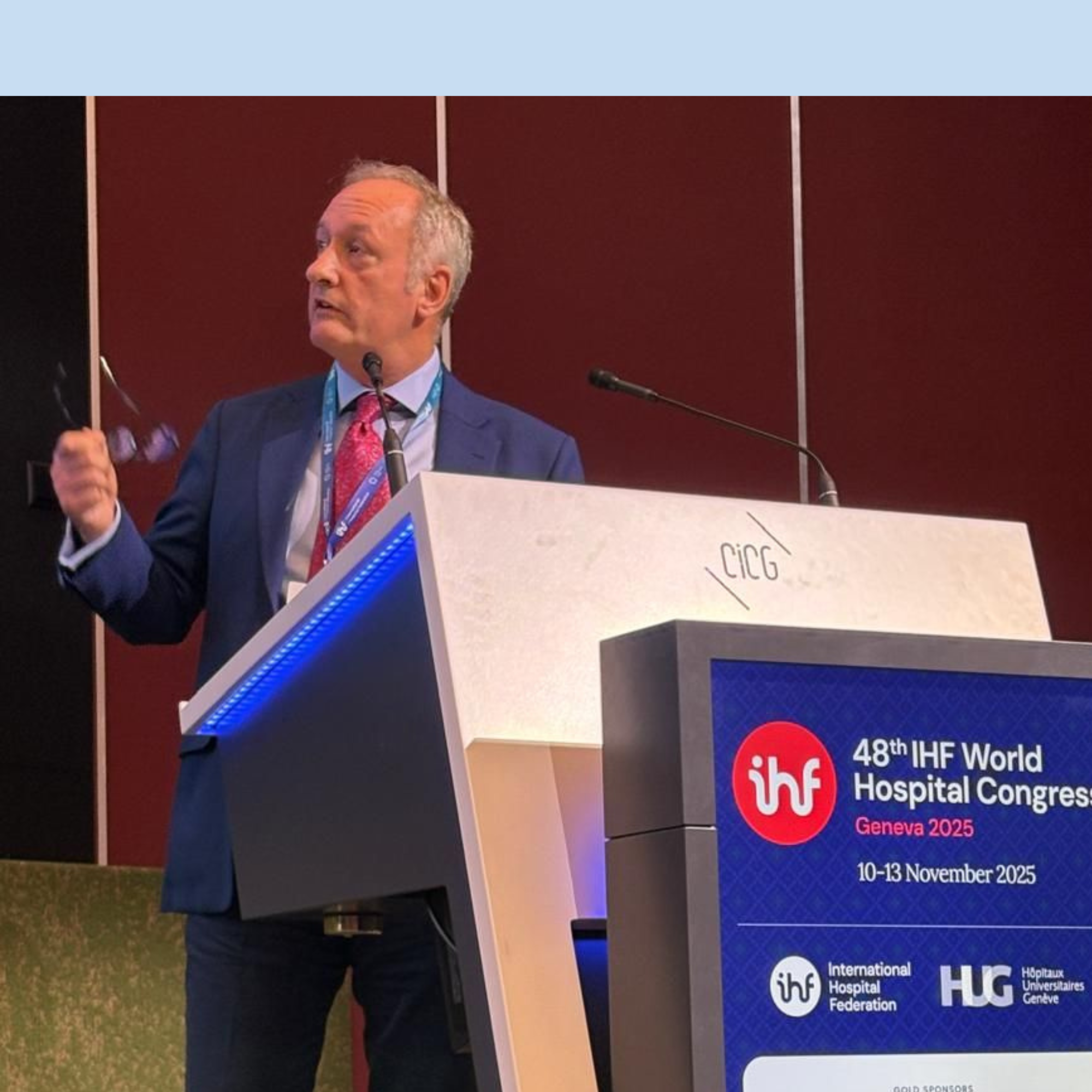


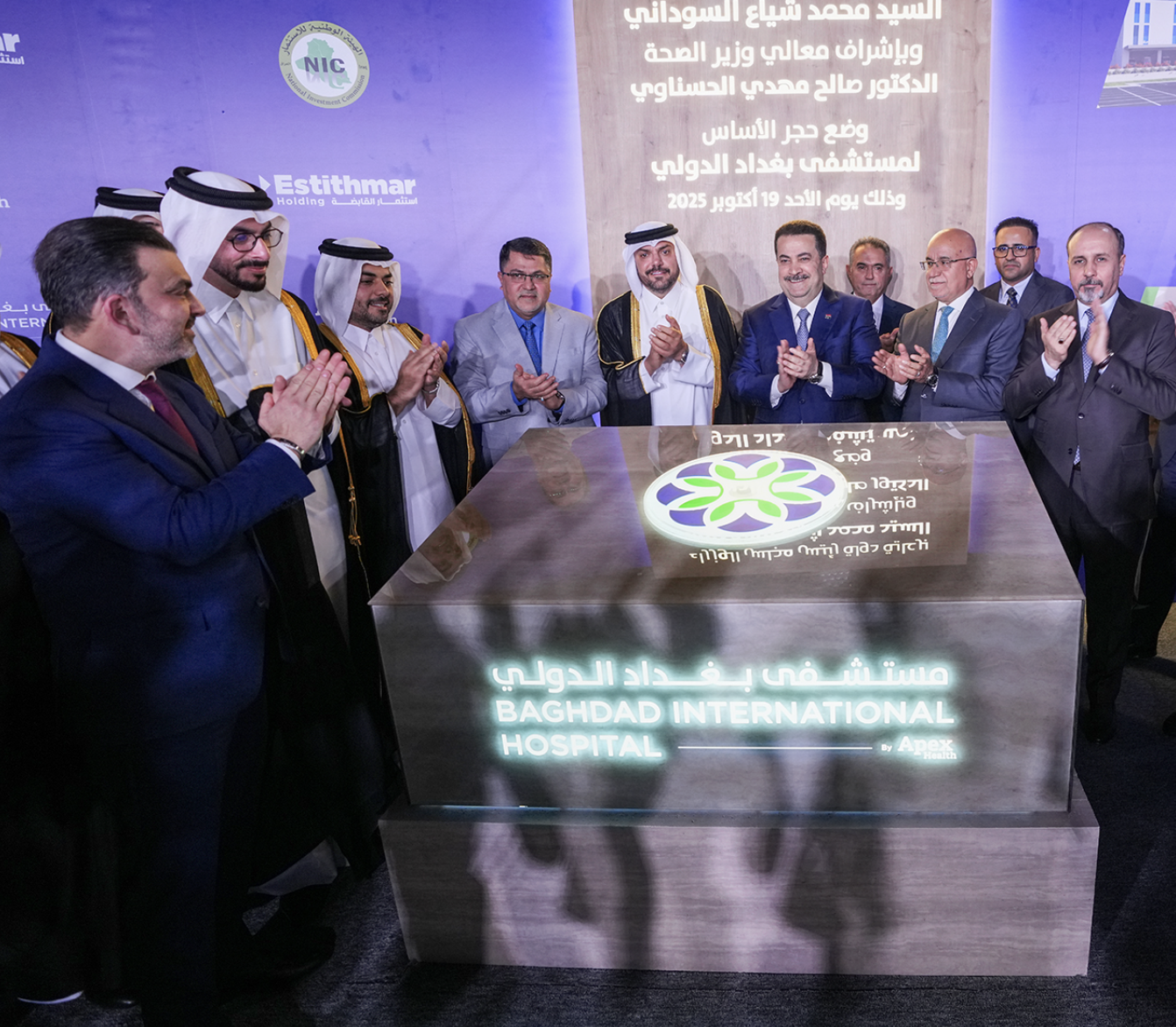
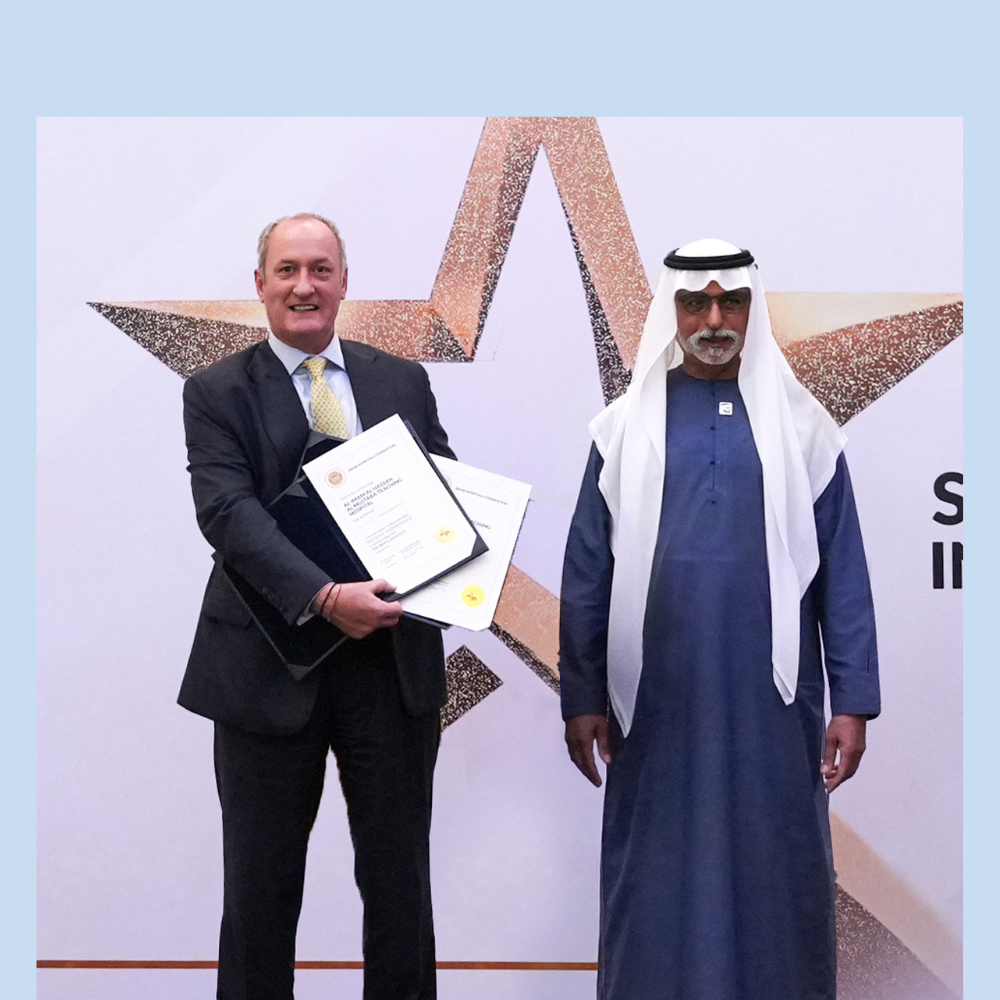

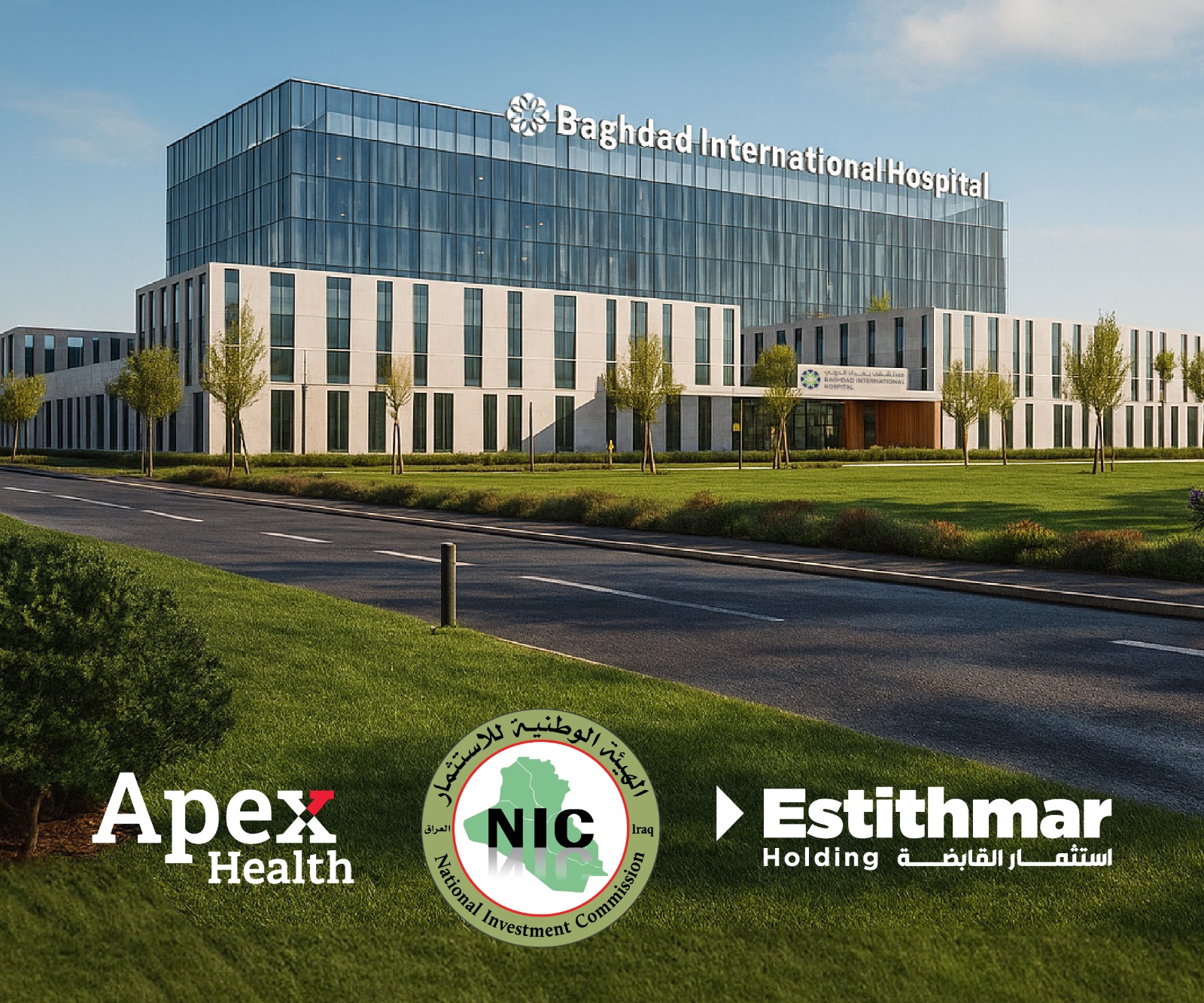

.png)



